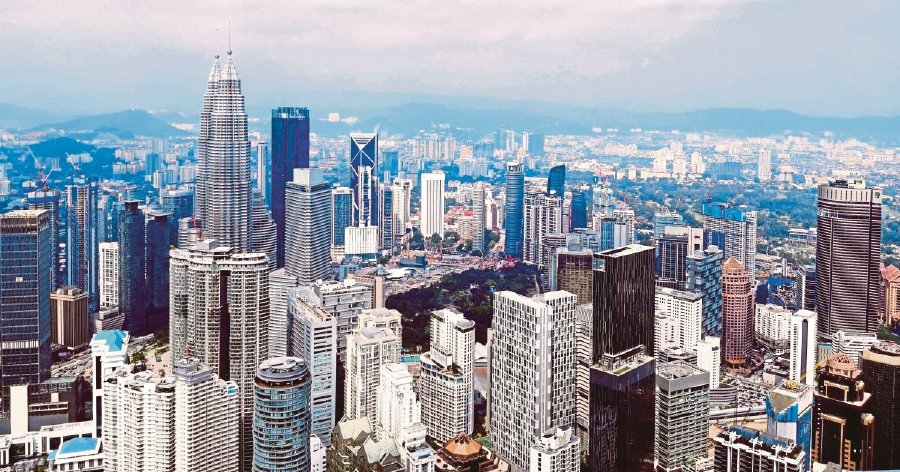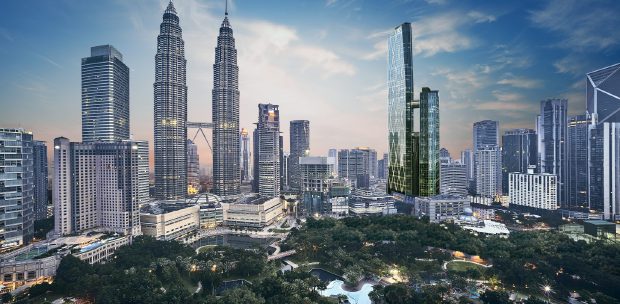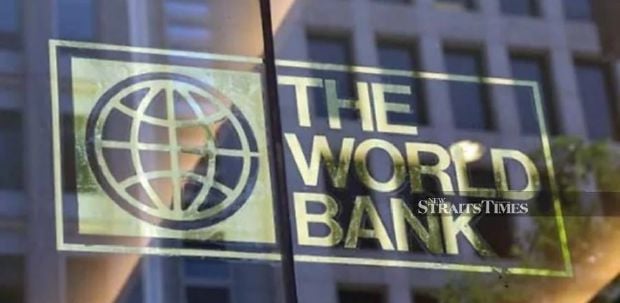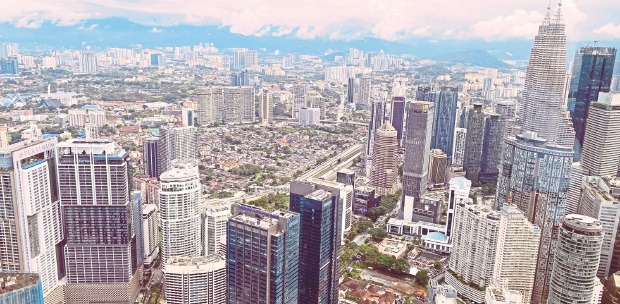KUALA LUMPUR: The World Bank has warned that the hope of averting a recession is fading for large and small nations but economists believe Malaysia will still grow faster this year.
They said the country would still be able to attain its targeted 2022 growth of five to six per cent, although the World Bank had revised its global growth from 4.1 per cent to 2.9 per cent.
The war in Ukraine, ongoing supply chain chokeholds, Covid-related lockdowns in China and dizzying rises in energy and food prices were battering economies all along the income ladder, saddling them with slower growth and surging inflation, the bank reportedly said last week.
S&P Global Market Intelligence Asia Pacific chief economist Rajiv Biswas said the Malaysian economy was expected to expand further in the second half of 2022, helped by strong exports and continued recovery in domestic demand. This would be helped by the removal of pandemic restrictions.
"The Malaysian economy is forecast to show strong economic growth in 2022, in the range of six per cent to seven per cent. The continued recovery of domestic demand and strong export growth underpin this rapid pace of economic expansion.
"Continued strong growth is forecast for 2023 in the range of 5.5 per cent to 6.5 per cent, as the economy continues to normalise from the impact of the pandemic," he told the New Straits Times.
He noted that an important factor benefiting Malaysia was the diversification of global manufacturing supply chains away from China.
Several international investments into Malaysia's manufacturing sector had strengthened the country's competitiveness as a leading electronics hub for global electronics multinationals, Biswas added.
"Malaysia's competitiveness as a global electronics hub has been highlighted by the decision of Intel to invest US$7 billion in a new semiconductor packaging plant in Penang, which is estimated to be completed by 2024.
"Foxconn has also signed a memorandum of understanding for a joint venture in Malaysia to build a semiconductors plant to manufacture 40,000 wafers per month," he added.
Bank Islam Malaysia Bhd chief economist Dr Mohd Afzanizam Abdul Rashid said Malaysia's gross domestic product (GDP) could still range between five per cent and six per cent this year due to a low base in 2021.
Reopening of the local economy was expected to bolster the growth, he added.
"The main question is always on the sustainability of the growth. So perhaps next year could be a challenging year in terms of sustaining the momentum especially when the supply chain disruption becomes more protracted," Afzanizam said.
He, however, said the downside risks to growth remained highly visible for Malaysia given that the country was connected to the global economy.
"The ripple effect from the external shocks are expected to have a significant impact on Malaysia. In that sense, it is extremely important that the domestic economy continue to be the primary mover for the country's growth," he added.
In this respect, he noted the strategy to normalise the expansion of fiscal and monetary policies enacted in the past two years would need to be executed tactfully.
Putra Business School associate professor Dr Ahmed Razman Abdul Latiff opined that the risk of stagflation for Malaysia was unlikely due to the growth that was still within the positive range, albeit at a slower pace.
"The target of minimum 5.3 per cent GDP growth for 2022 is still attainable and within target given that there is still high demand for Malaysian exports such as electrical and electronic and other commodities like petroleum, gas and palm oil," Ahmed Razman said.
University Kuala Lumpur business school economic analyst Assoc Prof Dr Aimi Zulhazmi Abdul Rashid said the targeted GDP growth was within reach but Malaysia had yet to achieve the momentum during pre-pandemic.
The higher inflation rate and higher interest rates would be main obstacles to achieve the targeted recovery, he added.
Besides external shocks like rising energy prices and Russia-Ukraine conflict, he said full economic recovery would also be tougher as Bank Negara Malaysia had raised the Overnight Policy Rate last month, which might be repeated again by the year-end.
"Malaysia must move into the higher level of manufacturing. The hesitance of foreign investors to bring new technology into Malaysia with rather low technology and lower cost of production does not augur well with the country's vision.
"So Malaysia cannot rely on the mercy of foreign investors but must have a blueprint that must be executed effectively with political will," Aimi Zulhazmi added.





